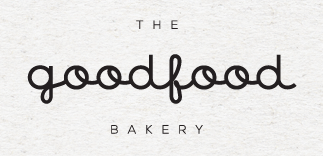When a friend of John Rudd told him that she hadn’t eaten a Cornish pasty for 20 years due to her coeliac condition, he decided to help. Four years later The Good Food Bakery is not only bringing in the dough, but supplying gluten free pasties to customers all over the UK.
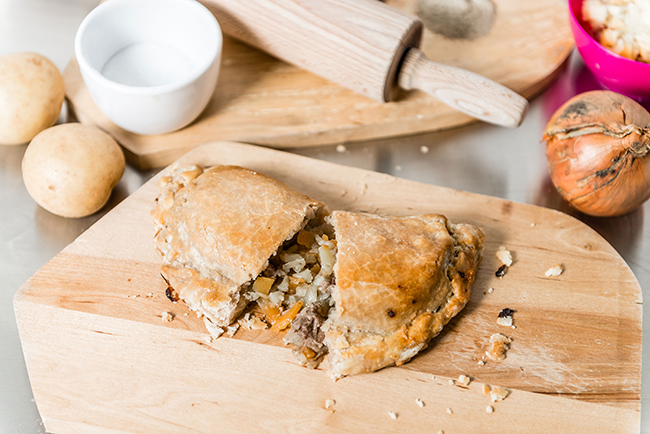
No one person can lay claim to the pasty; it is believed that it evolved for Cornish tin miners, who, unable to return to the surface at lunchtime had an easy to hold and hearty dish. With their hands often dirty from a mornings work, the pasty could be held by the thick pastry crust without contaminating the contents. The thick crust also acted as an insulator, keeping the contents warm for several hours.
In Cornwall, they are serious about their pasties and have gone so far as to defend them against corruption with a European PGI, or Protected Geographical Status. This ruling dictates that the pasty must be a robust savoury pastry filled with raw beef, swede, potato and onion – and, of course, be made inside the county.
One baker passionate about his pasties is John Rudd. For the past eight years, he and his wife have baked traditional Cornish pasties from their kitchen for customers in their home town of Helston, near Penzance. It wasn’t until a friend mentioned that she hadn’t been able to eat Cornwall’s favourite meal for most of her adult life that the couple’s life took an unexpected turn.
“I was shocked to hear that as a coeliac sufferer our friend, Tessa, couldn’t eat pastry,” recalls John. “Although nowadays there are plenty of food substitutes around, back then there was little choice so I was sad to hear she was missing out on her favourite foods. She told me that gluten free Cornish pasties simply weren’t available and that other products tasted like rubber. I immediately saw it as a personal challenge and set out to make a great tasting pasty.”
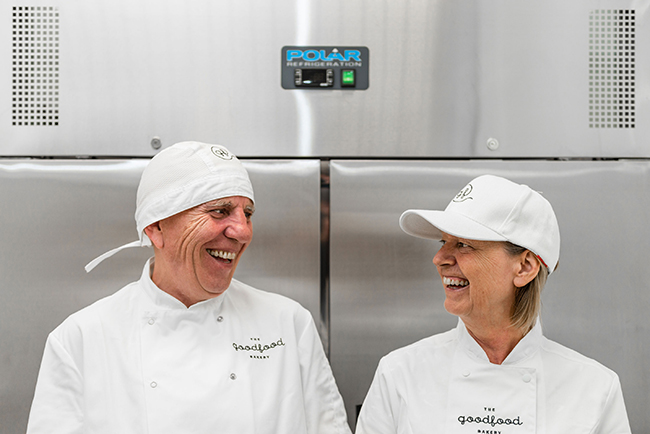
John and his wife, Eileen, immediately started experimenting with various ingredients and techniques to make a pastry that didn’t crumble – a common complaint around gluten free products. “We wanted to create a pasty that you could eat in your hands without it falling apart, rather than with a knife and fork on a plate,” he explains. “However, the first one I tried to make was a disaster. I found that rolling pastry without gluten was like rolling mashed potatoes and each time I touched it, the pastry would break into little pieces. I quickly realised it was not going to be an easy task.”
Over the next few months John tried to perfect the technique using a range of different methods. He tried storing the pastry at lower temperatures and using various binding agents, yet without success. “I lost count of the amount of times I attempted to mould the pastry,” John laughs. “Gluten does a great job of helping it to maintain its shape and acts a glue to hold it together. Without it the process just seemed impossible.”
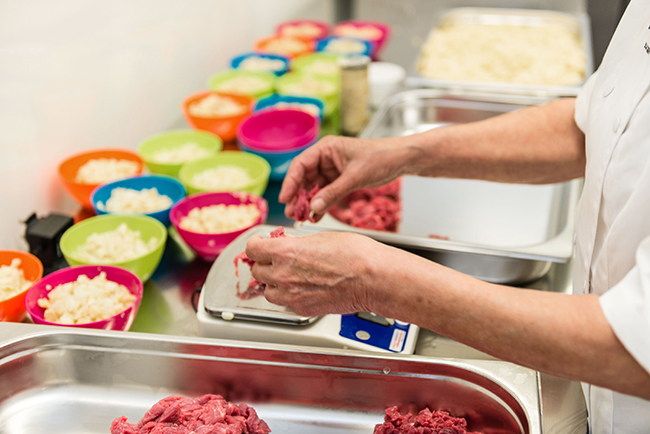
It wasn’t until last year and after countless attempts that John’s son suggested a binding ingredient which he felt could make a difference. A nutrition and health food fanatic, Mark, 42, had spent time researching protein ingredients and had an idea of one that could work.
“Mark’s suggestion of binding agent turned out to our eureka moment,” he exclaims. It immediately helped the pastry gel together and I knew straight away we had cracked it.” John and his wife spent the next few months perfecting the pastry with the new ingredient. Soon they began making small batches of gluten free pasties to a growing number of customers as word began to spread. The family quickly realised there was a gap in the market for an officially certified gluten free Cornish pasty for people not just in the local area, but all over the UK.
“By this time we were aware that a couple of other gluten free Cornish pasties had come on the market, but none that were officially certified. We thought it was vital that people could buy our product with the confidence that there was zero chance of cross contamination and that they wouldn’t be ill the following day.”
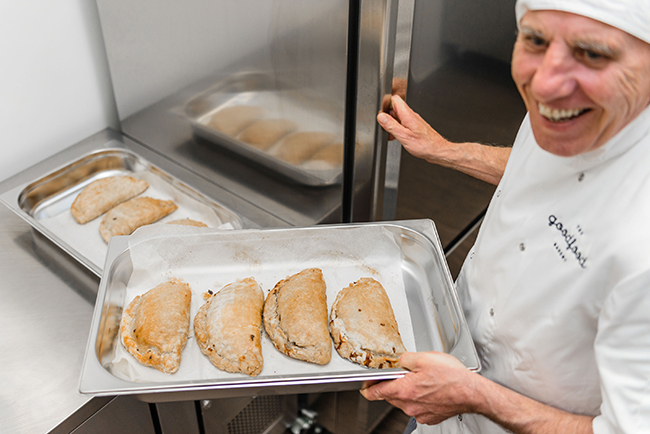
Cross-contamination occurs when a gluten-free product comes into contact with other gluten based products. It usually begins where food is prepared and packaged, such as with the supplier or the manufacturer. Flour containing gluten can permeate in the air for hours after use, coating surfaces and creating a health hazard.
“By working closely with Cornwall Council we obtained the official Crossed Grain product certification along with accreditation from the Pasty Association and Coeliac UK, so we’re confident this is the world’s first officially certified gluten free Cornish pasty,” he proclaims. “Our aim was to give people back the traditional food they love whether it’s a steak, vegetarian or cheese Cornish pasty and by getting our product gluten-free certified has helped put our customers at ease. It is also reassuring for us to know that we are providing the best gluten-free product we possibly can.”
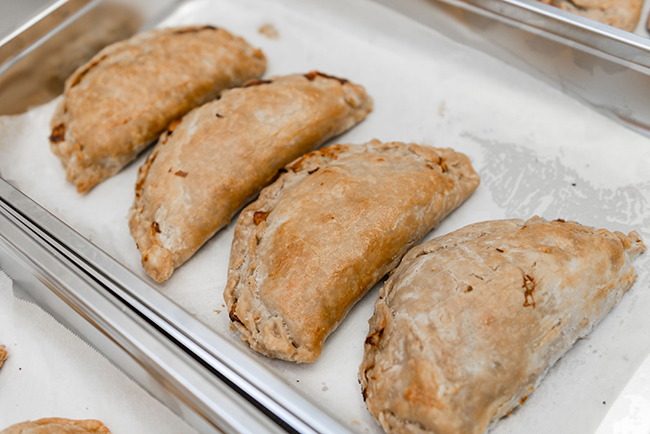
In January the family decided to expand the business and moved into a brand new specialist bakery and now supply gluten free Cornish pasties by mail order. All of their handmade pasties are blast frozen before being vacuum packed and sent out in specialist thermal packaging to ensure maximum freshness.
Since the launch the company is now supplying cafes, delicatessens and health food shops and has even received several enquiries from large manufacturers. The family hopes to expand the range of products in the future to offer more choice to people following gluten free diets.
“For me, it’s not about the money,” confides John. “It’s about knowing that people who previously couldn’t eat pastry can now enjoy a great tasting Cornish pasty. It’s that thought that makes me smile.”
For more information visit www.thegoodfoodbakery.co.uk.

